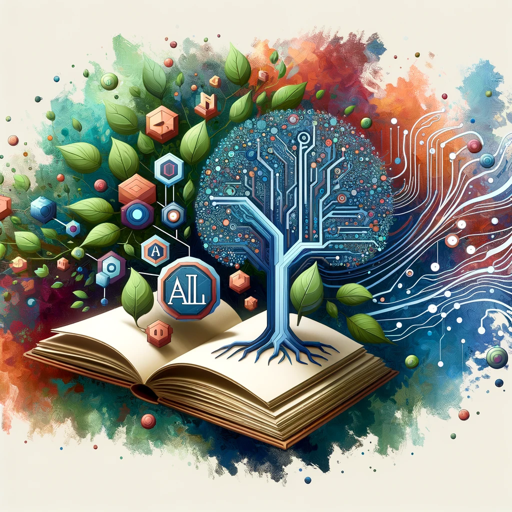Ollama Assistant-local AI server hosting
AI-powered local language model server
Related Tools
Load More
Personal Assistant
Meet the Personal Assistant, your innovative companion designed to organize and optimize your daily life. Simply start by saying 'Hi!'

OchyAI
Conveying Ochiai's Art, Research, and Philosophy by OchyAI

LifeOS
Body. Mind. Soul.

Academic Assistant
Academic Assistant: Professional academic assistant with a professorial touch

Personal Assistant
A versatile personal assistant with note-taking and retrieval abilities. Currently in beta.

Assistants Helper
I am a Master of the Open AI Assistants Documentation and can help you build any swarm of assistants
20.0 / 5 (200 votes)
Introduction to Ollama Assistant
Ollama Assistant is a specialized local API server designed to host various local, open-source language models (LLMs) and provide an OpenAI API-compatible interface. Its primary purpose is to offer a seamless, private, and customizable environment for developers and organizations to leverage LLMs without relying on external cloud services. By running locally, Ollama ensures data privacy, security, and control over the models used. For example, a company concerned with data privacy can deploy Ollama Assistant on-premises to utilize advanced LLM capabilities for internal applications such as customer support automation, content generation, or code assistance.

Main Functions of Ollama Assistant
Local Hosting of Language Models
Example
Hosting models such as GPT-3 or other open-source alternatives locally.
Scenario
A financial institution can run advanced LLMs on their secure servers to automate customer interactions without exposing sensitive data to external services.
OpenAI API Compatibility
Example
Providing endpoints similar to OpenAI's API for easy integration.
Scenario
A developer familiar with OpenAI's API can switch to using Ollama's local server with minimal changes to their codebase, ensuring a smooth transition while maintaining API functionalities.
Model Management
Example
Importing, managing, and updating various language models.
Scenario
An enterprise can import specialized models fine-tuned for their domain, regularly updating them to improve performance and accuracy in applications like automated report generation or technical support.
Ideal Users of Ollama Assistant
Enterprises Concerned with Data Privacy
Organizations that handle sensitive data, such as financial services, healthcare, and legal firms, benefit from using Ollama Assistant as it allows them to leverage powerful LLMs without sending data to external servers, thus ensuring compliance with data protection regulations.
Developers and Tech Startups
Tech-savvy individuals and startups looking for customizable and private LLM solutions can use Ollama Assistant to integrate advanced language capabilities into their applications, prototypes, or research projects while maintaining full control over their data and infrastructure.

How to Use Ollama Assistant
Visit aichatonline.org for a free trial without login, also no need for ChatGPT Plus.
Start by visiting the aichatonline.org website where you can access Ollama Assistant for a free trial without any need for a login or ChatGPT Plus subscription.
Install Prerequisites
Ensure you have Docker installed on your system, as Ollama relies on Docker containers for deployment. Additionally, confirm that your system meets the minimum requirements, including sufficient CPU and memory.
Download and Configure Ollama
Download the necessary Ollama files from the official repository and configure the settings according to your environment. This includes setting up network configurations, model storage paths, and any required environment variables.
Start the Ollama Server
Run the Ollama server using Docker commands. You can start the server and check logs to ensure it's running correctly. Use commands such as `docker-compose up` to launch the server.
Integrate and Use
Integrate Ollama with your applications using provided APIs. Utilize endpoints for generating completions, chat completions, and managing models. Explore common use cases like text generation, chatbot integration, and more.
Try other advanced and practical GPTs
Jenkins
Automate your workflows with AI-powered Jenkins.

Algebra
AI-powered Algebra Tutor

Linear Algebra
AI-driven solutions for Linear Algebra problems.

Turnitin Rate Killer 2.0
AI-Powered Academic Essay Refinement

Instant “12-Step Foolproof Sales Letter” Creator
Craft Persuasive Sales Letters with AI Precision

Auto Exbert (DEV)
AI-Powered Solutions for Every Task

Data Structures and Algorithms God
Master Data Structures and Algorithms with AI Power

毕业论文降重
AI-powered rewriting for academic papers.

Vite Copilot
AI-powered web development optimization

Master Prophet sermon Maker
AI-powered sermons at your fingertips

Cat memo(猫ミーム)
Create engaging cat memes with AI

Code Whisperer
AI-powered code assistance.

- API Integration
- Text Generation
- Chatbot
- Model Management
- Local Deployment
Ollama Assistant Q&A
What is Ollama Assistant?
Ollama Assistant is an open-source project that creates a local AI server to host various open-source language models, providing an API clone of OpenAI for local deployment.
How can I integrate Ollama with my existing application?
You can integrate Ollama with your application by using the provided API endpoints for generating text completions, chat responses, and managing models. Detailed API documentation is available in the Ollama repository.
What are the system requirements for running Ollama?
Ollama requires a system with Docker installed, sufficient CPU, and memory. For GPU acceleration, compatible NVIDIA GPUs and appropriate CUDA drivers are necessary.
Can I use Ollama with JavaScript or Python?
Yes, Ollama can be integrated with both JavaScript and Python. Detailed guides for integration with LangChain in both languages are provided in the Ollama documentation.
How do I troubleshoot issues with Ollama?
Refer to the troubleshooting section in the Ollama documentation for tips on resolving common issues. This includes checking logs, verifying network configurations, and ensuring Docker is running correctly.